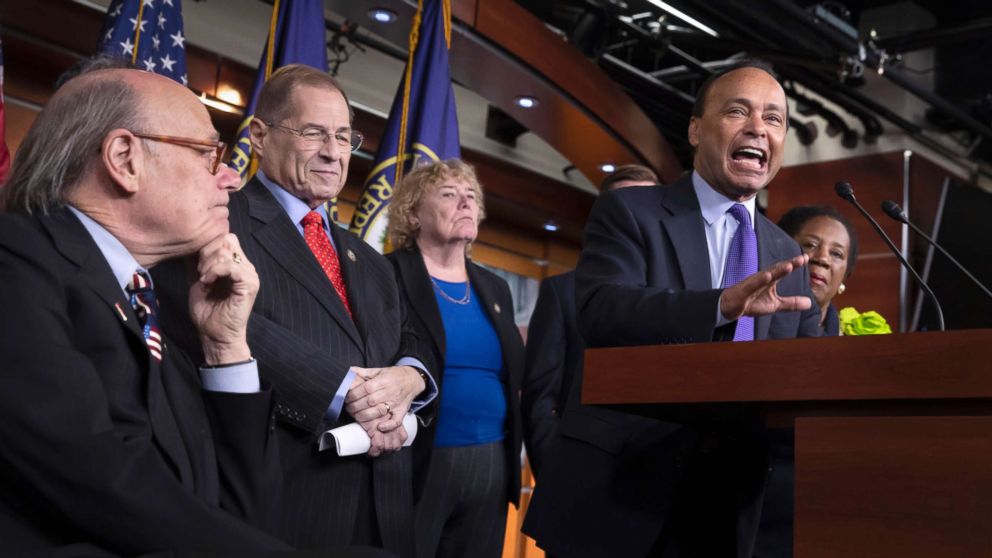
Technology companies, banks and industrial companies all rose Thursday as investors got ready for big banks to announce their first-quarter results and let go of some of their concerns about the trade dispute between the U.S. and China.
Continue Reading Below
Big tech companies like Apple and Microsoft, the market’s leaders over the last year, rose again. Industrial companies like Boeing and Caterpillar gained ground as well, with airlines climbing after Delta reported solid results in the first quarter. Bond prices dropped and interest rates rose, which helped banks.
Friday morning, JPMorgan Chase, Wells Fargo and PNC Financial Services will report their first batch of quarterly results since last year’s corporate tax cut went into effect. Alicia Levine, head of global investment strategy at BNY Mellon Investment Management, said that’s giving investors something new to focus on after almost six weeks of worrying about a trade war.
“Part of the reason that markets were strong this week is in anticipation of perhaps better than expected earnings,” she said. Levine said she thinks companies are likely to beat Wall Street’s expectations thanks in part to the lower tax rate.
The S&P 500 index gained 21.80 points, or 0.8 percent, to 2,663.99. The Dow Jones industrial average added 293.60 points, or 1.2 percent, to 24,483.05. The Nasdaq composite climbed 71.22 points, or 1 percent, to 7,140.25. The Russell 2000 index of smaller-company stocks advanced 10.52 points, or 0.7 percent, to 1,557.33.
The market has been jittery as investors worried about tariffs and other barriers to trade. Investors may have been pleased to hear that, according to a group of legislators, President Donald Trump asked advisers to explore the possibility of the U.S. rejoining trade talks with 11 Pacific nations. Those countries formalized a deal last month after Trump rejected the Trans-Pacific Partnership, an earlier agreement that involved the U.S.
Advertisement
The S&P 500, a benchmark that is used by many index funds, has fallen for three of the last four weeks, but it’s up 2.3 percent so far this week as investors felt new proposals by Chinese President Xi Jinping could help avert a trade war. On Thursday China’s government denied that Xi was trying to resolve the dispute and said negotiations with the U.S. aren’t possible right now.
Levine, of BNY Mellon, said the tariffs the U.S. and China have proposed won’t stop the growth of the U.S. economy, but they could cause real pain for some industries and investors sold stocks in response to that.
“If you use steel and aluminum, you might be less likely to open up another plant if you’re a manufacturer,” she said. “You might be less likely to raise wages.”
Bond prices fell. The yield on the 10-year Treasury note rose to 2.84 percent from 2.79 percent. That helped banks because higher yields mean they can make more money from mortgages and other types of loans. Big dividend stocks like utilities and household goods companies fell, as investors see them as an alternative to bonds and they are less interested in buying them when yields rise.
Home goods retailer Bed, Bath & Beyond plunged after it gave a weak forecast for the fiscal year. The company also said it expects its earnings to decline next year and its stock fell 20 percent to $17.21. Online rival Amazon gained 1.5 percent to $1,448.50.
Oil prices continued to trade at three-year highs. Benchmark U.S. crude rose 0.4 percent to $67.07 a barrel in New York. Brent crude, used to price international oils, shed 0.1 percent to $72.02 a barrel in London.
Precious metals prices tumbled. Gold dropped 1.3 percent to $1,341.90 an ounce and silver fell 1.8 percent to $16.47 an ounce. Copper lost 1.7 percent to $3.06 a pound.
Wholesale gasoline lost 0.6 percent to $2.05 a gallon. Heating oil dipped 0.4 percent to $2.08 a gallon. Natural gas rose 0.4 percent to $2.69 per 1,000 cubic feet.
Bristol-Myers Squibb fell and Pfizer rose after an analyst for Citi Investment Research said a deal between the two drugmakers isn’t likely to happen. Analyst Andrew Baum said he met with Pfizer’s top executives Wednesday and don’t want to buy Bristol-Myers or any other big company. Bristol-Myers lost 2.2 percent to $58.84, giving it a market value of $96 billion. Pfizer rose 1.5 percent to $36.52.
Drugmaker Mallinckrodt dropped after a former employee filed a whistleblower lawsuit against the company. Rasvinder Dhaliwal said Mallinckrodt asked her to mislead an insurance company so it would cover Acthar gel, a drug that brings in more than one third of Mallinckrodt’s revenue, and said an executive acknowledged the company misled payers about what Acthar is made of.
The lawsuit says she had numerous other concerns about potentially illegal or improper behavior, but the company retaliated against her for bringing them up and ultimately fired her last month.
Mallinckrodt said it “vehemently disagrees with the allegations” and will defend itself in court. Its stock fell 6.8 percent to $13.89.
The dollar rose to 107.23 yen from 106.95 yen. The euro fell to $1.2329 from $1.2362.
The DAX in Germany rose 1 percent and France’s CAC 40 added 0.6 percent. The FTSE 100 in Britain rose less than 0.1 percent. Japan’s benchmark Nikkei 225 stock index dipped 0.1 percent while the Kospi in South Korea ended 0.1 percent lower. Hong Kong’s Hang Seng fell 0.2 percent.
____
AP Markets Writer Marley Jay can be reached at http://twitter.com/MarleyJayAP . His work can be found at https://apnews.com/search/marley%20jay


